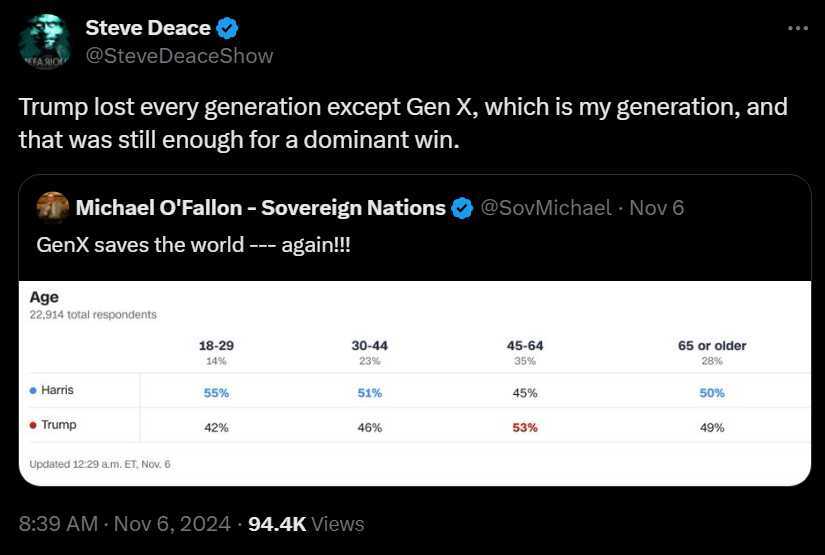A Return to Traditional Values
- Diversity, Equity, and Inclusion (DEI): Before Gen X, the workplace was about meritocracy, where skills and hard work determined success, not quotas or diversity checklists. They value fair play, where everyone has an equal chance based on merit, not identity.
- Sports and Gender: There was a time when sports were a straightforward affair, where biological sex determined participation. Gen Xers remember when women's sports were for women, highlighting their discomfort with biological men competing against women, which they perceive as an erasure of women's achievements.
- Education: Once upon a time, a degree signified hard work and achievement. Now, many Gen Xers see higher education as having shifted its focus, where ideological purity tests have begun to overshadow academic rigor, leading to skepticism about its current value.
- Cultural Identity: Pride was initially about rights for gay and lesbian individuals, not a broad spectrum of identities including what some view as extreme or fetishistic expressions. Gen X seeks a return to when cultural movements focused on equality rather than the celebration of every individual identity.
- Media Integrity: The media's role was to inform, not to shape public opinion. Gen Xers recall when journalists were seen as watchdogs of democracy, not as participants in the political fray, which has led to a distrust in modern media practices.
- Societal Norms: The aspiration for a stable family life, a good job, and homeownership was celebrated, not mocked. This generation stands for the ordinary, hardworking American's dream without being demeaned for it.
A Generation That Remembers
- Cultural Pride: There was an era when national pride wasn't a contentious issue but a shared feeling. Gen Xers push back against the narrative that loving one's country is inherently problematic.
- Historical Nuance: Understanding history as complex, with various shades of gray, rather than dichotomous narratives of oppression, is a hallmark of this generation's worldview.
- Immigration: They remember when immigration policies focused on integration and contribution, rather than what they see as less scrutinized entries leading to cultural and economic strain.
- Economic Policies: Taxes and government spending used to directly benefit the citizens through infrastructure, education, and healthcare, not what they perceive as globalist agendas or endless foreign conflicts.
Gen X’s Place in History
In the 2024 election, Generation X stood apart as the only generation that Donald Trump won outright. Their overwhelming support wasn’t just significant; it played a crucial role in sealing his victory. Faced with what they perceived as the excesses of modern progressive policies, Gen X rallied to defend the principles and values they believe are essential to the nation’s survival, casting their votes in a way that tipped the scales in favor of a future rooted in tradition and constitutional fidelity.
This "Forgotten Generation," was propelled by a desire to reclaim the America they grew up in—a simpler, meritocratic society unburdened by ideological polarization. As Kamala Harris’s campaign highlighted the possibility of sweeping changes, such as expanding the Supreme Court, granting statehood to new territories, and creating a one-party state where only Marxist Democrats win elections, Gen X voters saw a critical moment to act. Their collective voice, deeply shaped by their upbringing in an era that valued individual responsibility and fair play, became the bedrock of Trump's support, ensuring a victory that conservatives believe will safeguard American institutions.
Generation X has now etched its place among America’s great generations. Much like the 1750s patriots, the 1840s Unionists, and the World War II "Greatest Generation," Gen X has proven to be a force defending freedoms they view as under threat. Just as past generations fought against tyranny and division, Gen X is rising against what they perceive as cultural and ideological overreach. Their stand on issues like educational rigor, media integrity, and protecting women’s sports reflects their broader commitment to preserving societal norms that ensure fairness and stability.
With the 2024 election, Gen X has demonstrated that it is not just a bridge between Baby Boomers and Millennials but a generation with the power to shape the nation’s course. By delivering their votes decisively, they’ve become a pivotal part of American history, upholding the legacy of defending liberty and guiding the nation through times of cultural upheaval.













